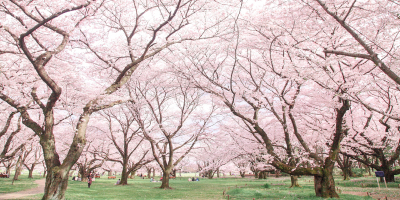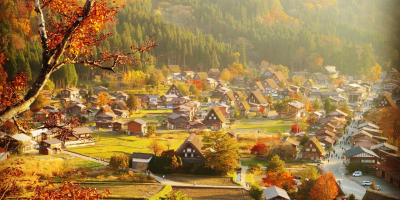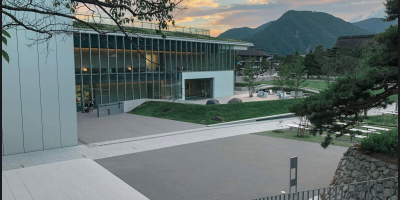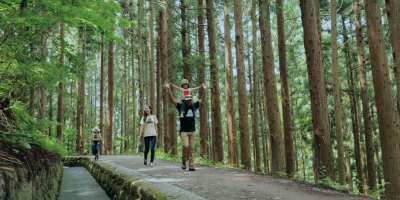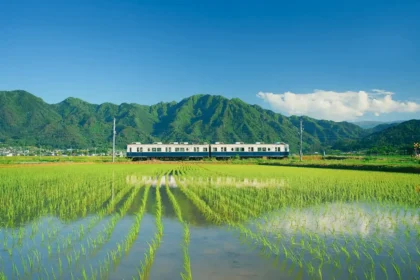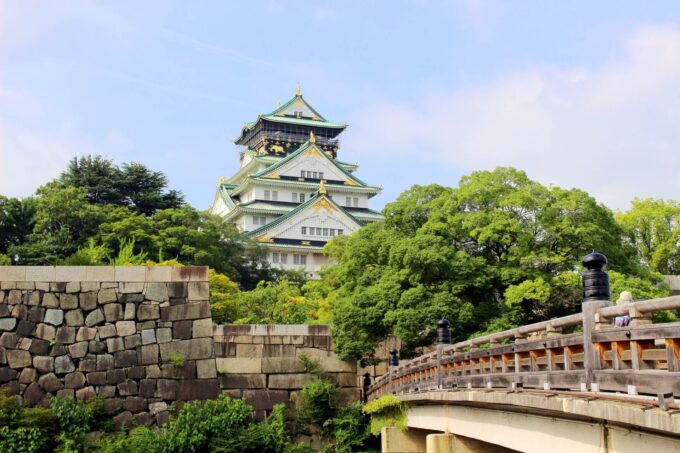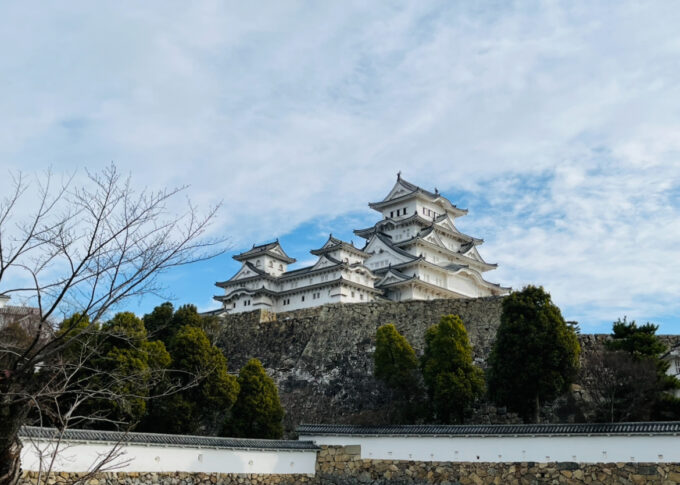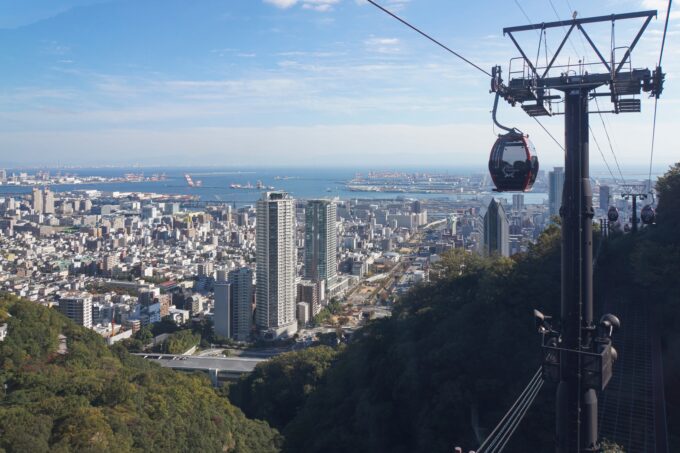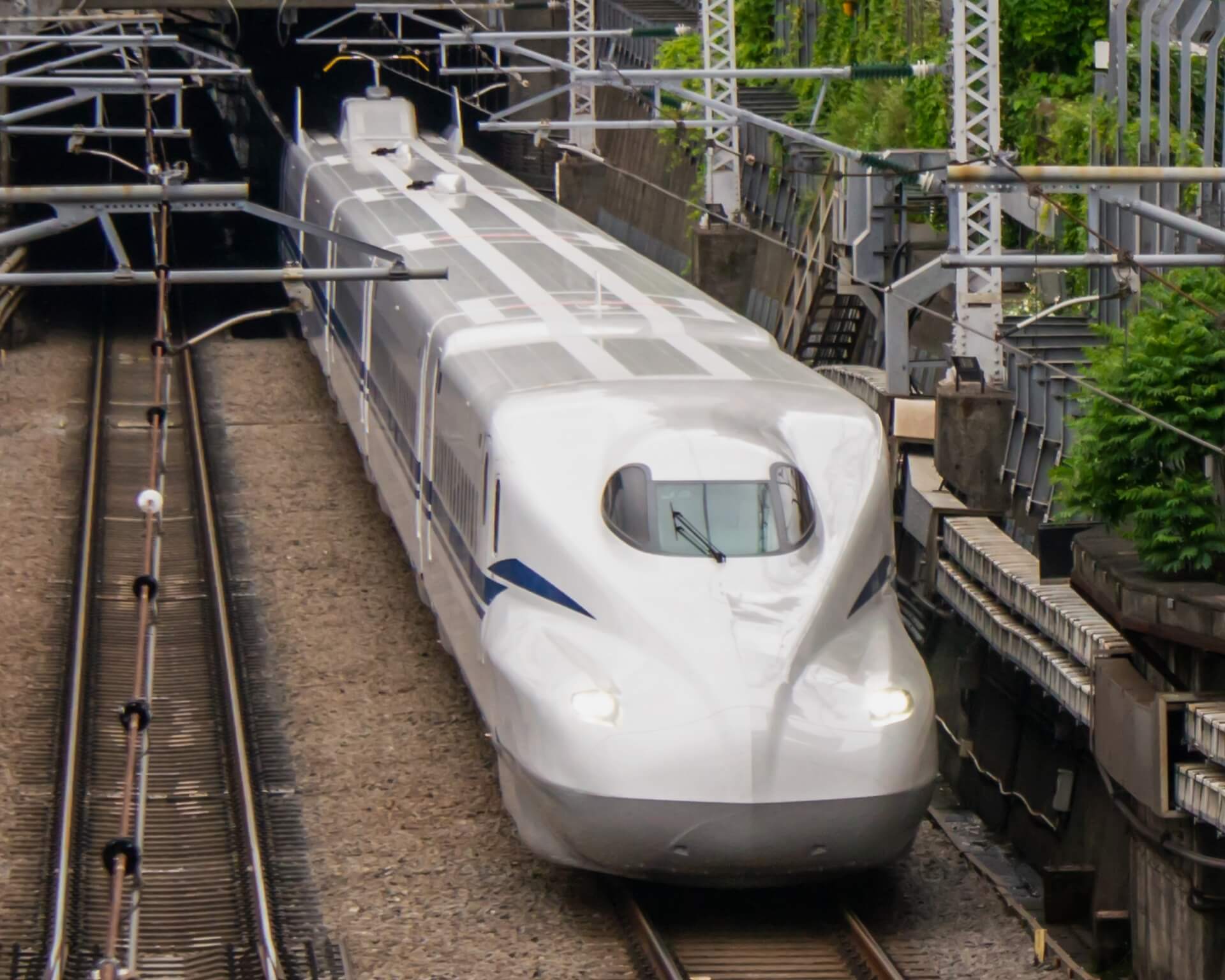
The San’yo Shinkansen runs from Shin-Osaka Station to Hakata Station with some services connecting through to the Tokaido Shinkansen and Kyushu Shinkansen lines – making it a fast and convenient route connecting some of Japan’s most popular tourist destinations. On this page you will find the following information:
-- San’yo Shinkansen Line Map & Stations
-- Types of Carriages & Seating
-- Connection to the Tokaido Shinkansen
-- Connection to the Kyushu Shinkansen
Japan’s shinkansen network really is a marvel. Spanning-out across the entire country, it is quick, comfortable and easy to use. No trip to Japan is truly complete without using it at least once. International visitors will find the San’yo Shinkansen easy and convenient to use noting that two services on the line – the ‘Nozomi’ and ‘Mizuho’ services – are not covered by the Japan Rail (JR) Pass – more on that below. This won’t affect any travel plans as all other services are covered, offering the fastest way to move through western Japan.
Before boarding the San'yo Shinkansen, why not make the most of your time in Osaka and join our 1-Day Walking tour in Osaka. Let one of our experienced guides show you around Osaka city!
SAN’YO SHINKANSEN LINE MAP & STATIONS
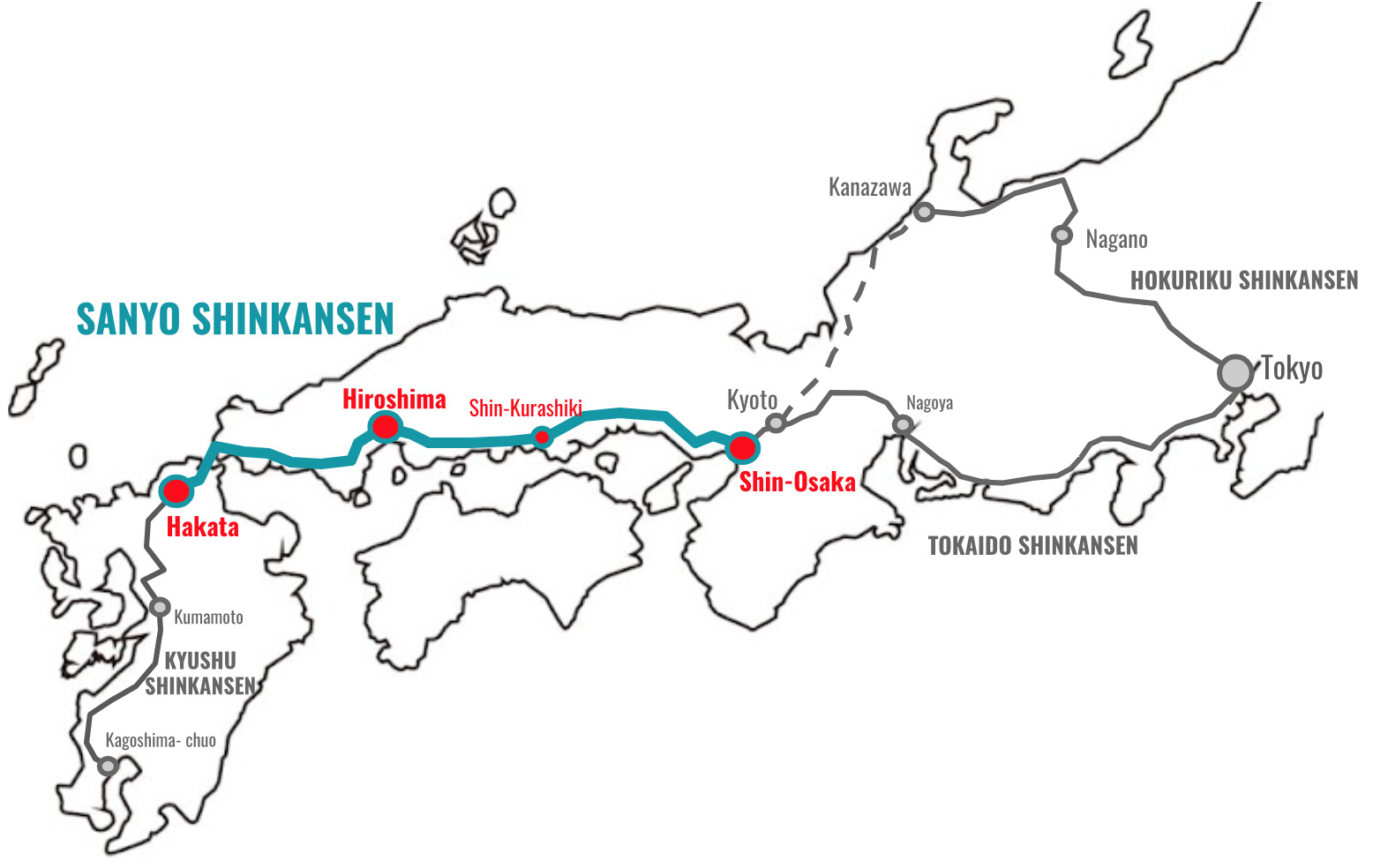
Running from Shin-Osaka Station to Hakata Station, the San’yo Shinkansen covers around 555km and is the primary transport route from Osaka into the prefectures making-up the Chugoku region of Japan including Okayama, Hiroshima and Yamaguchi. Stops on the line include:
Shin-Osaka / Shin-Kobe / Nishi-Akashi / Himeji / Aioi / Okayama / Shin-Kurashiki / Fukuyama / Shin-Onomichi / Mihara / Higashi-Hiroshima / Hiroshima / Shin-Iwakuni / Tokyuama / Shin-Yamaguchi / Asa / Shin-Shimonoseki / Kokura / Hakata (Fukuoka)
While there is no shinkansen line running to the island of Shikoku, regional services running from Okayama Station on the San’yo Line allow travellers to connect through to Shikoku while the San’yo terminuses of Shin-Osaka Station and Hakata Station are all serviced by the Tokaido Shinkansen and Kyushu Shinkansen, respectively. For more information about each line, see the information below.
1-Day Walking Tour in Himeji : Castle, Garden and Aizome (Indigo Dyeing)
- Spots:
- Pick-up:
- Drop-off:
Join our Himeji tour today! The San'yo Shinkansen stops in the city of Himeji, so let one of our guides take you on a tour of this wonderful city. Himeji has one of the most beautiful castles in Japan. Unlike many other Japanese castles, Himeji castle was never destroyed by wars, earthquakes, or fire, and survives to this day as one of Japan’s original 12 castles.
TYPES OF SERVICES
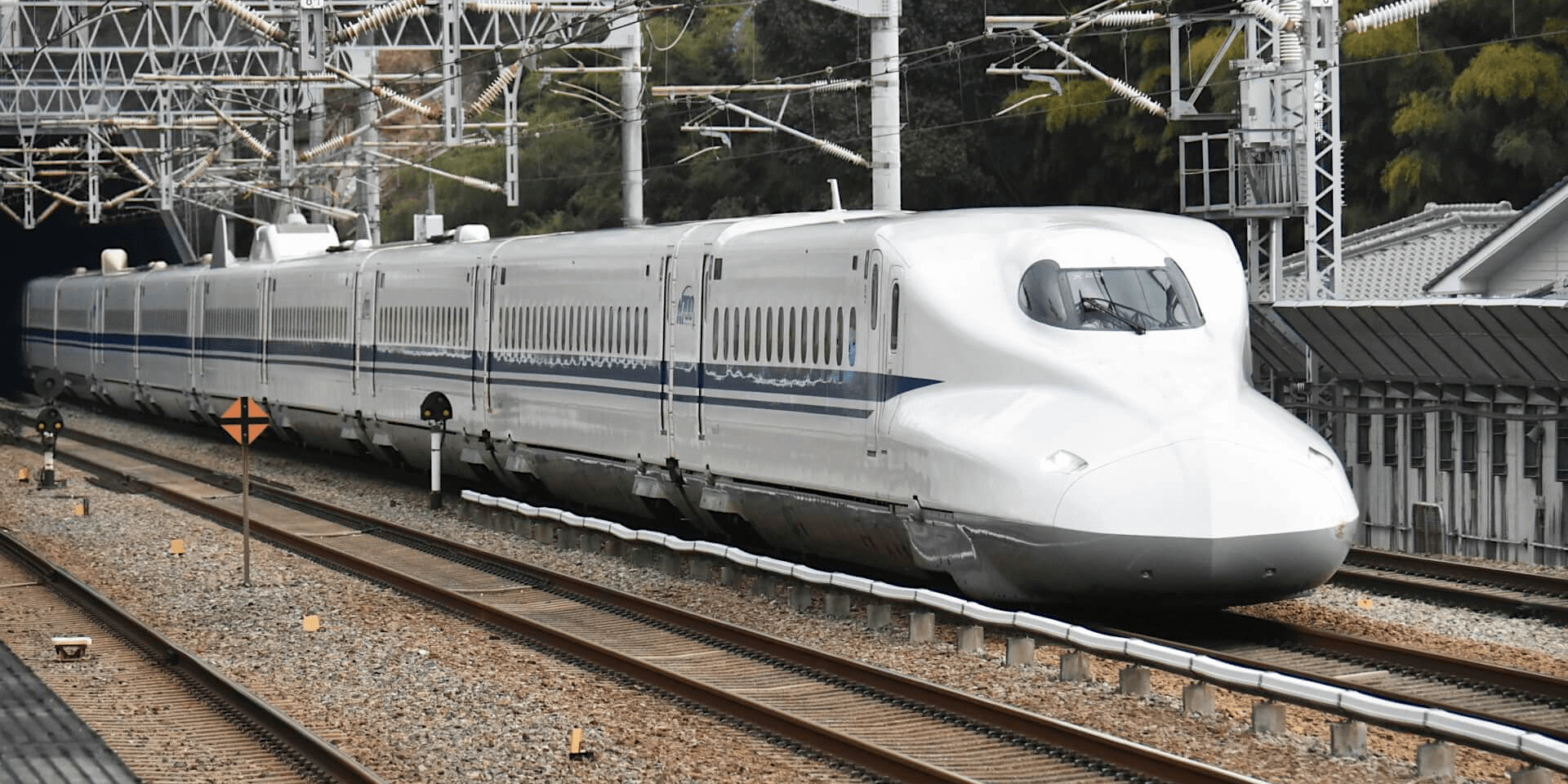
Five types of service operate on the line however it’s important to note that international visitors holding a valid Japan Rail (JR) Pass can only use three of those services – Nozomi and Mizuho services are not covered by the pass - as discussed below:
Nozomi Shin-Osaka to Hakata: 150 minutes
The ‘Nozomi’ is the most regular service on the line, typically operating three times each hour and stopping at a limited number of stations including Shin-Osaka, Shin-Kobe, Okayama, Hiroshima, Kokura and Hakata. Two services each hour run from Shin-Osaka to Hakata while another runs only from Shin-Osaka to Hiroshima. Services have 15 cars and include non-reserved, reserved and Green Car carriages. It is important to note that the JR Pass does not cover this service.
Mizuho Shin-Osaka to Hakata: 150 minutes
The ‘Mizuho’ is another super-fast service, also taking around 150 minutes to cover the distance between terminuses. Some services continue past Hakata Station and services the Kyushu Shinkansen line. Services have 16 cars and include non-reserved, reserved and Green Car carriages. Like the Nozomi, this service is not covered by the JR Pass.
Sakura Shin-Osaka to Hakata: 155 to 165 minutes
The ‘Sakura’ is covered by the JR Pass and covers the journey from Shin-Osaka to Hakata in good time while some services also continue onto Kagoshima-Chuo on the Kyushu Shinkansen line. Sakura services have 8 cars and include non-reserved, reserved and Green Car carriages.
Hikari Shin-Osaka to Hakata: 195 minutes
The ‘Hikari’ is the covered by the JR Pass. Most services run only as far as Okayama – which takes around 60 minutes from Shin-Osaka – with a couple of services running all the way from Shin-Osaka to Hakata in 195 minutes. Hikari services have 8 cars and include non-reserved, reserved and Green Car carriages.
Kodama Shin-Osaka to Hakata: 240 minutes
The ‘Kodama’ is covered by the JR Pass. Stopping all stations between Shin-Osaka and Hakata, it is the slowest service on the line. All services have 8 cars and include non-reserved and reserved carriages while only some services also include Green Car.
TYPES OF CARRIAGES & SEATING
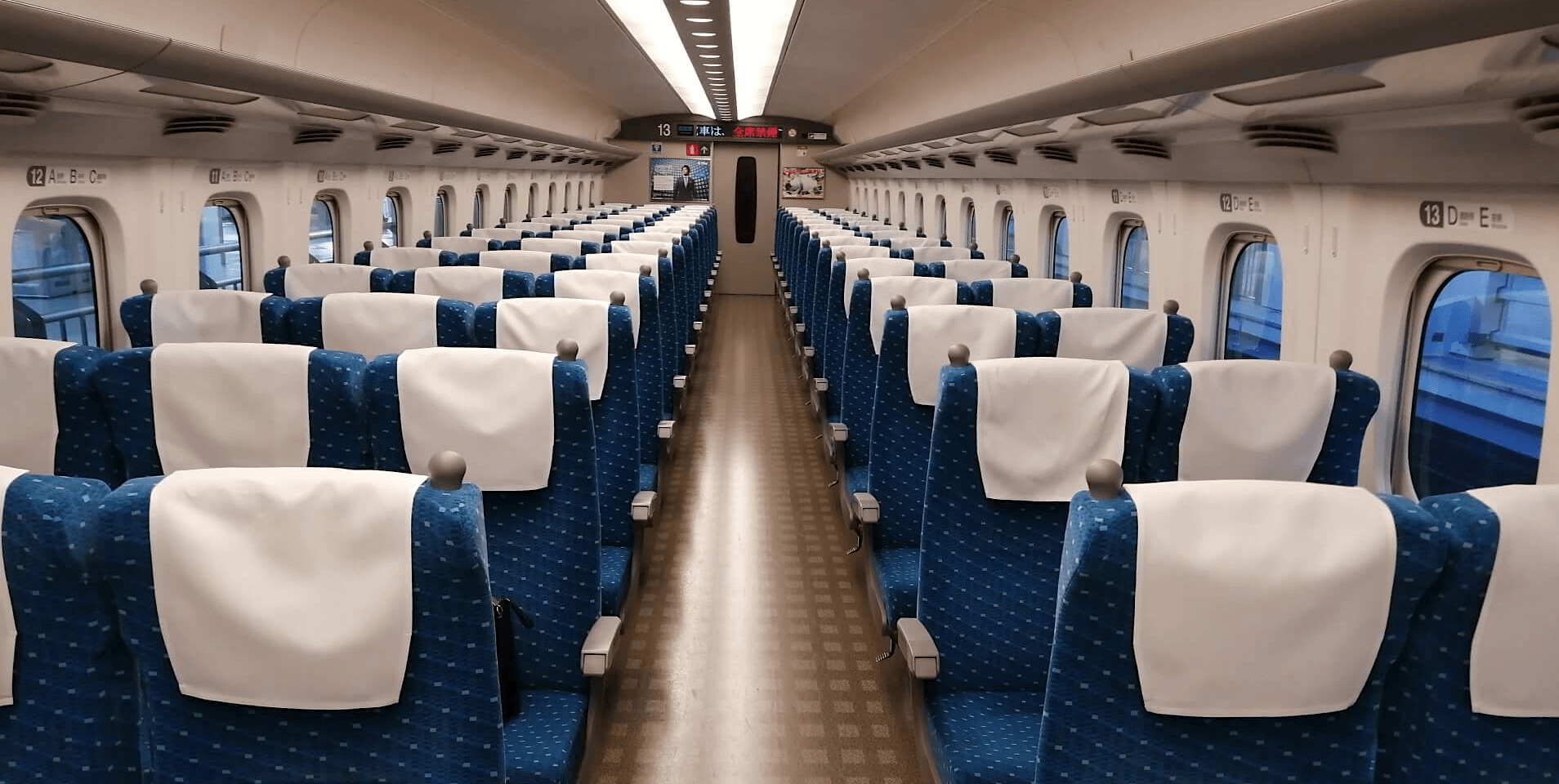
Depending on the service, trains running on the San’yo Shinkansen line have either 16 cars or 8 cars. All services on the line have both non-reserved and reserved seating carriages. Almost all services also have a Green Car. At this time, no San’yo Shinkansen services include a Gran Class carriage:
ORDINARY CAR
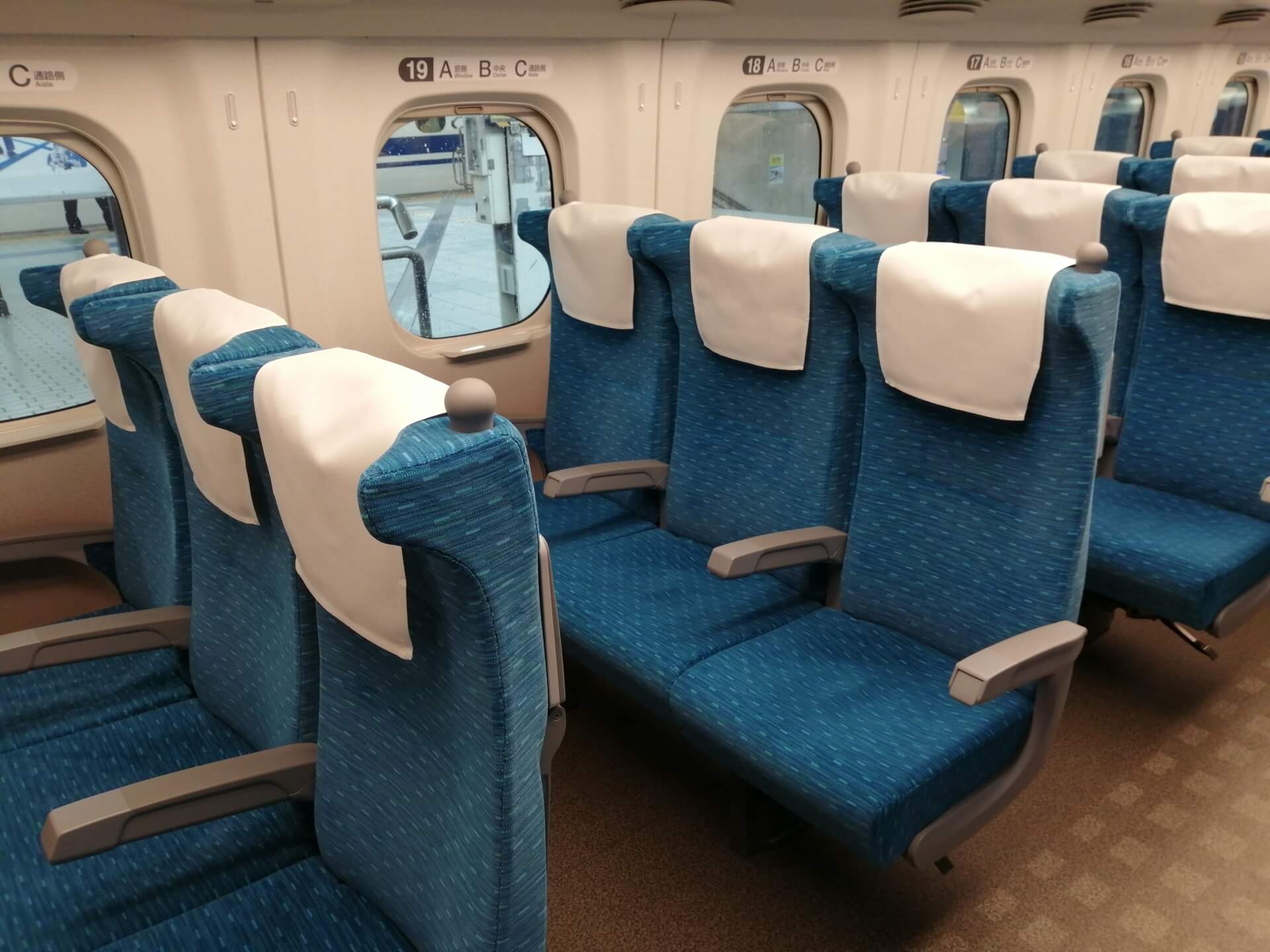
Most carriages on any shinkansen service will be comprised of ordinary cars. Ordinary cars typically have 5 seats per row separated by an aisle, with 3 seats on one side and 2 seats on the other - a standard 3 x 2 layout. Seats are comfortable and recline with reasonable legroom available. Each seat has a tray table which folds down from the seat in front and power access for charging electronic devices. Overhead storage is available above each seat however it is worth noting that larger luggage can be difficult to store. All services on the San’yo Shinkansen line have both non-reserved and reserved carriages.
GREEN CAR
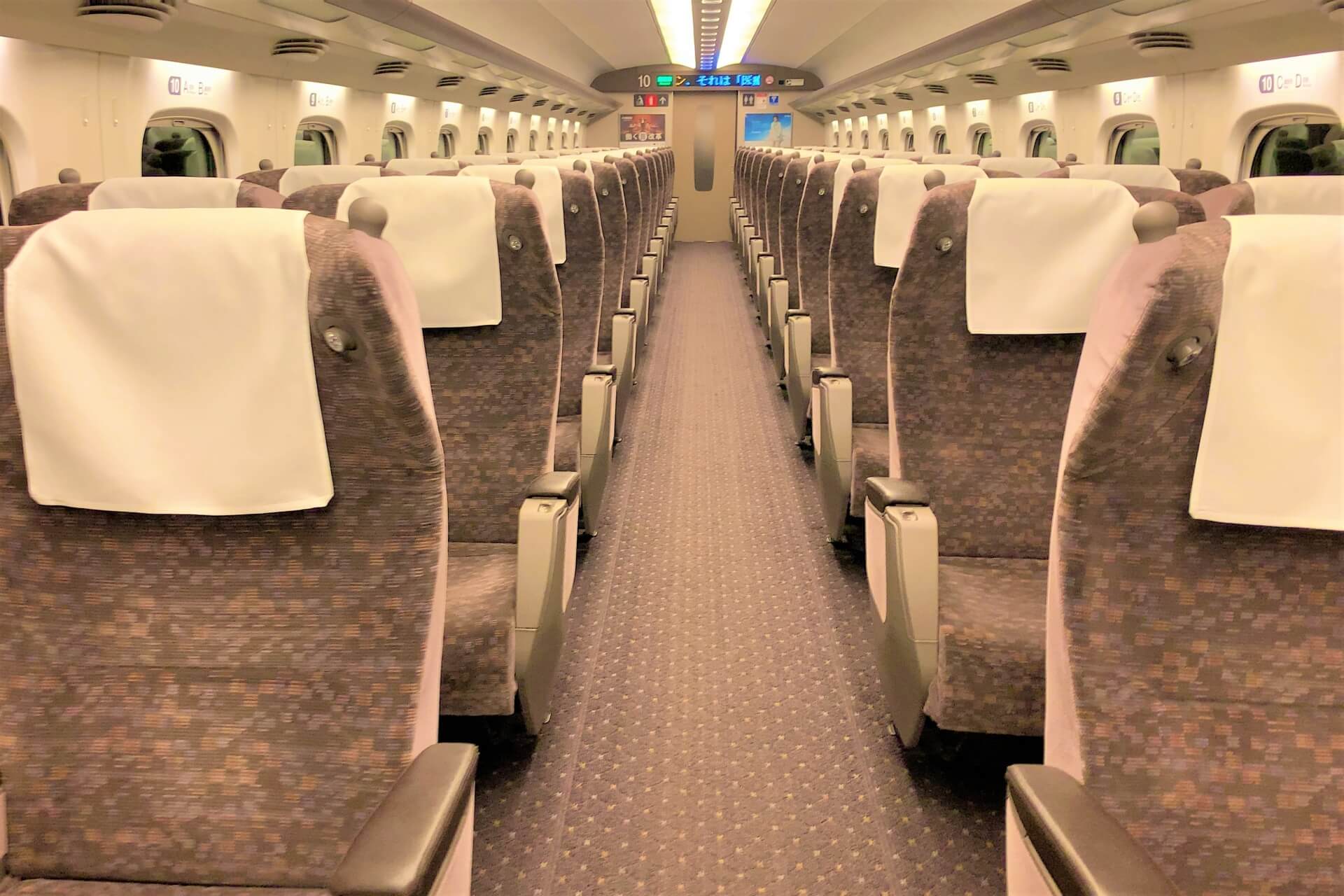
Most shinkansen services will have one Green Car, identified by a green four-leaf clover symbol. These cars are reservation only and slightly more expensive than seating in an ordinary car. Seats are more spacious and comfortable with more legroom. There are only 4 seats per row, divided by an aisle with 2 seats each side - a 2 x 2 layout. More generous spacing also allows more room for luggage. Extra features including a reading lamp and footrest make the Green Car comfortable. Popular with business travellers, these carriages are typically quiet and can be compared to business class on an airline. For the relatively small price difference, Green Car is a good option for travellers who want that extra bit of comfort and quiet.
CONNECTION TO THE TOKAIDO SHINKANSEN
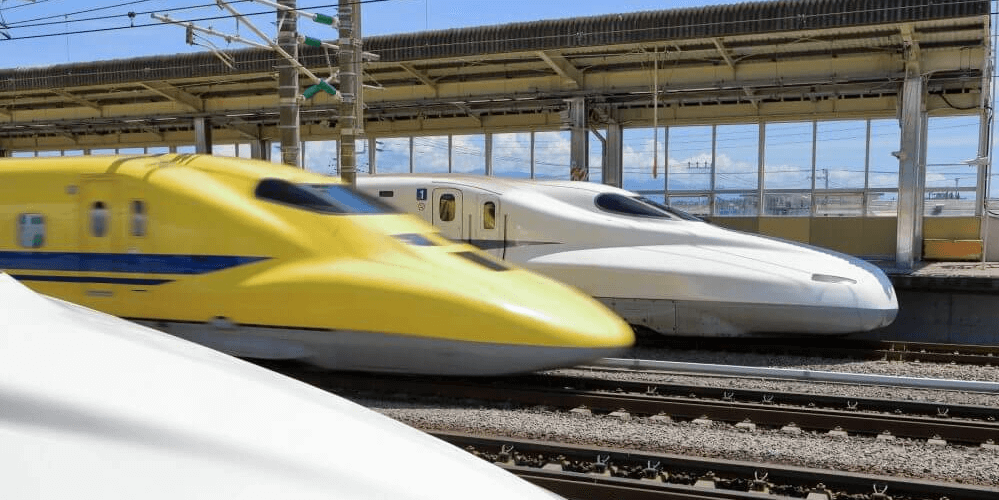
The Tokaido Shinkansen runs from Shin-Osaka Station to Tokyo Station. While most San’yo services terminate at Shin-Osaka, some also continue onto stops on the Tokaido line. Should you need to transfer from the San’yo to the Tokaido, it’s easy to do so at Shin-Osaka Station. All shinkansen services operate from Platforms 20 to 27 at Shin-Osaka, so it’s just a matter of checking the operating platform of the service you wish to take and using the stairs to walk between platforms – no more than a one or two minute walk.
CONNECTION TO THE KYUSHU SHINKANSEN
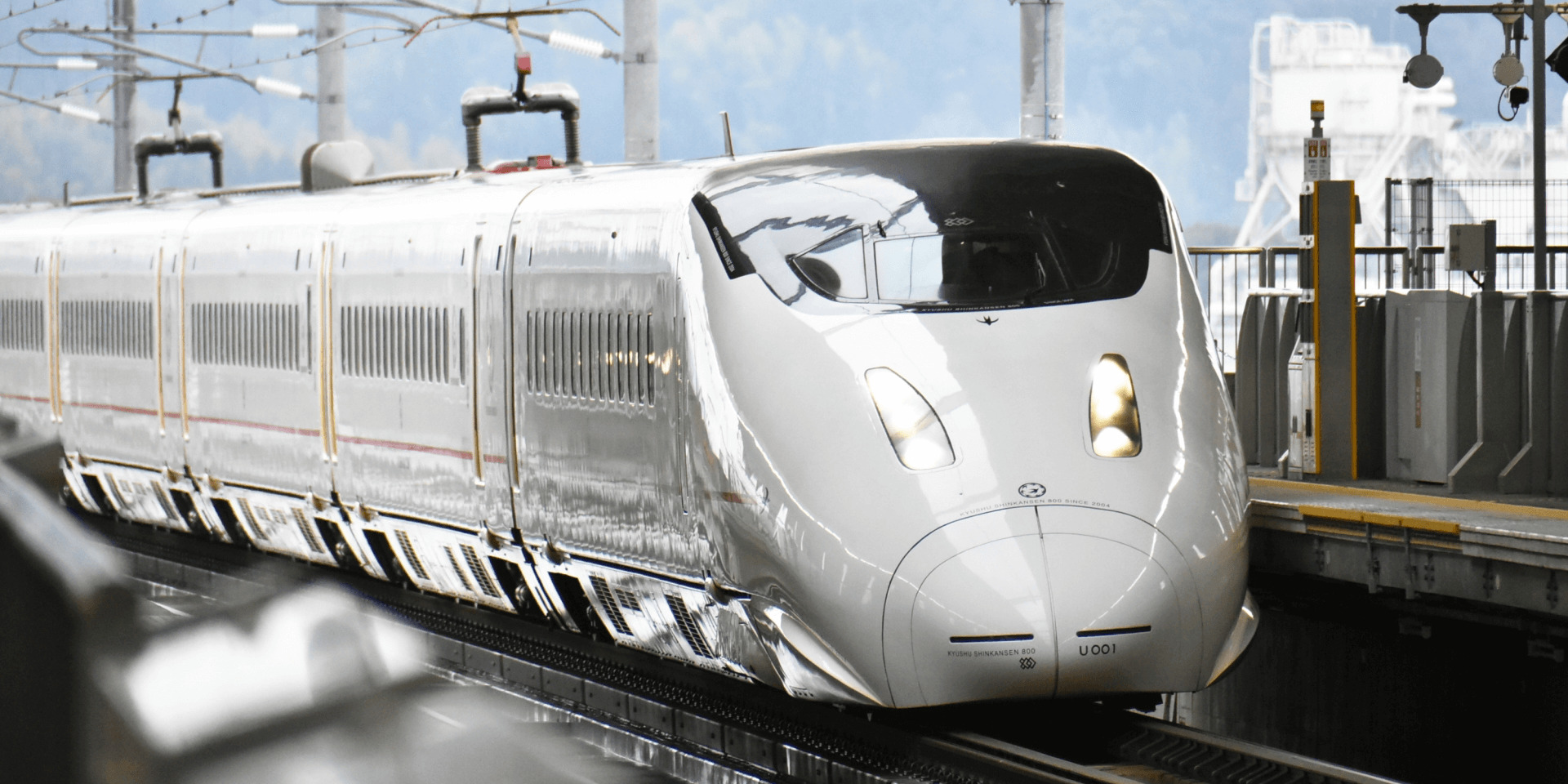
The Kyushu Shinkansen is a short regional line running from Hakata Station (Fukuoka) to Kagoshima-Chuo. Most While San’yo services terminate at Hakata some also continue onto the Kyushu Shinkansen line including some ‘Sakura’ services – taking around 245 minutes to complete the full journey from Shin-Osaka to Kagoshima-Chuo via Hakata.
FARES & TIMETABLES
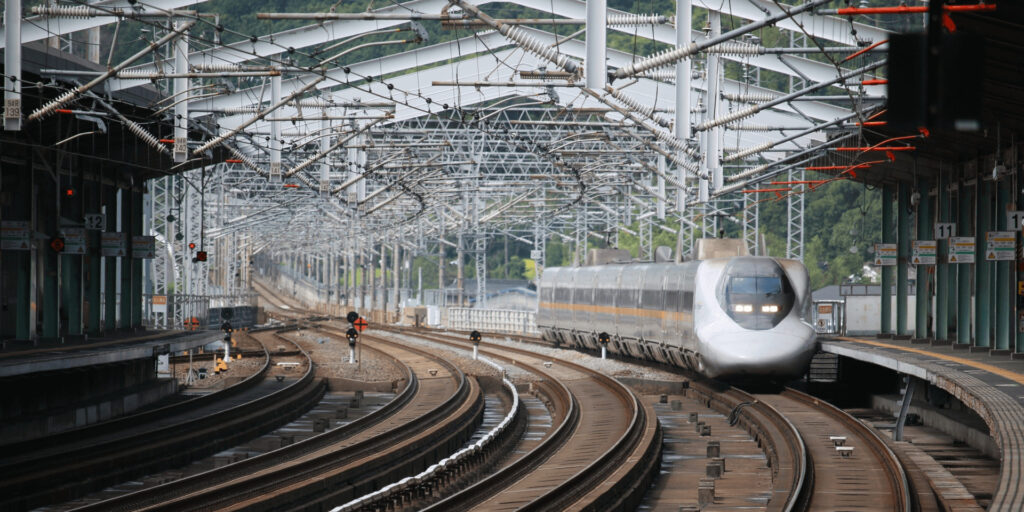
Numerous services operate on the San’yo Shinkansen line each day. For details including the timetable, please refer to our ‘San’yo Shinkansen Timetable’ page.
Obviously fares will vary greatly depending on your start and end point and whether you wish to book a non-reserved (NR), reserved (R) or Green Car (GR) carriage. But as a guide, the following prices are accurate as of March 2022*:
Shin-Osaka to Shin-Kobe = NR. JPY1520 / R. JPY3140 / GR. JPY3710.
Shin-Osaka to Himeji = NR. JPY3280 / R. JPY4010 / GR. JPY4580.
Shin-Osaka to Okayama = NR. JPY5610 / R. JPY6550 / GR. JPY8620.
Shin-Osaka to Hiroshima = NR. JPY9890 / R. JPY10,830 / GR. JPY14,290.
Shin-Osaka to Hakata = NR. JPY14,750 / R. JPY15,800 / GR. JPY21,670.
Shin-Osaka to Kagoshima-chuo = NR. JPY21,780 / R. JPY22,510 / GR. JPY31,530.
*Please note that pricing is subject to change and the above prices should be used only as a guide.
The San'yo Shinkansen stops at Shin-Kobe and Kobe city is just a short train ride away. Join our Kobe tour today and experience the best of Kobe with one of our experienced guides.
TICKETING & TRAVEL PASSES
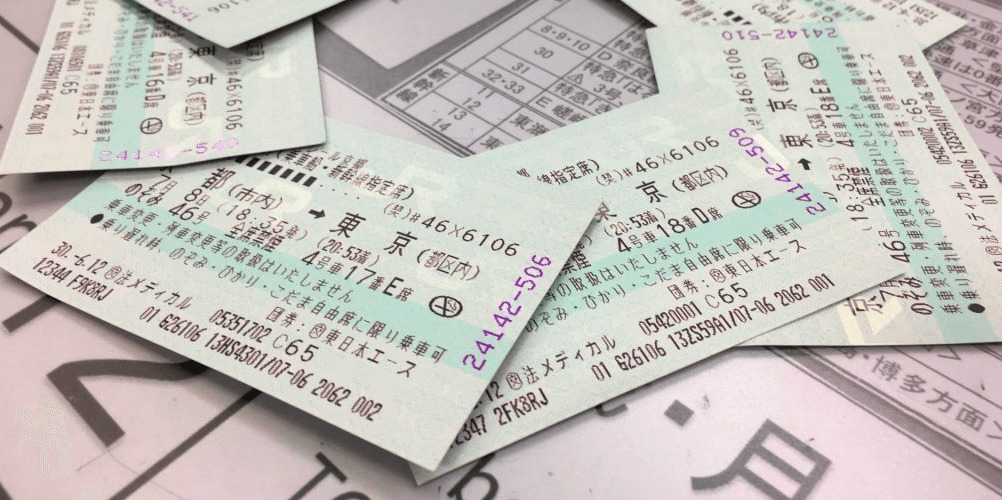
Tickets can be purchased at any major station using the shinkansen ticket machines or Japan Rail office (both will be clearly marked). English-speaking attendants are usually on-hand to assist at major stations. Alternatively, tickets can be purchased online up to 30 days in advance of your intended date of travel.
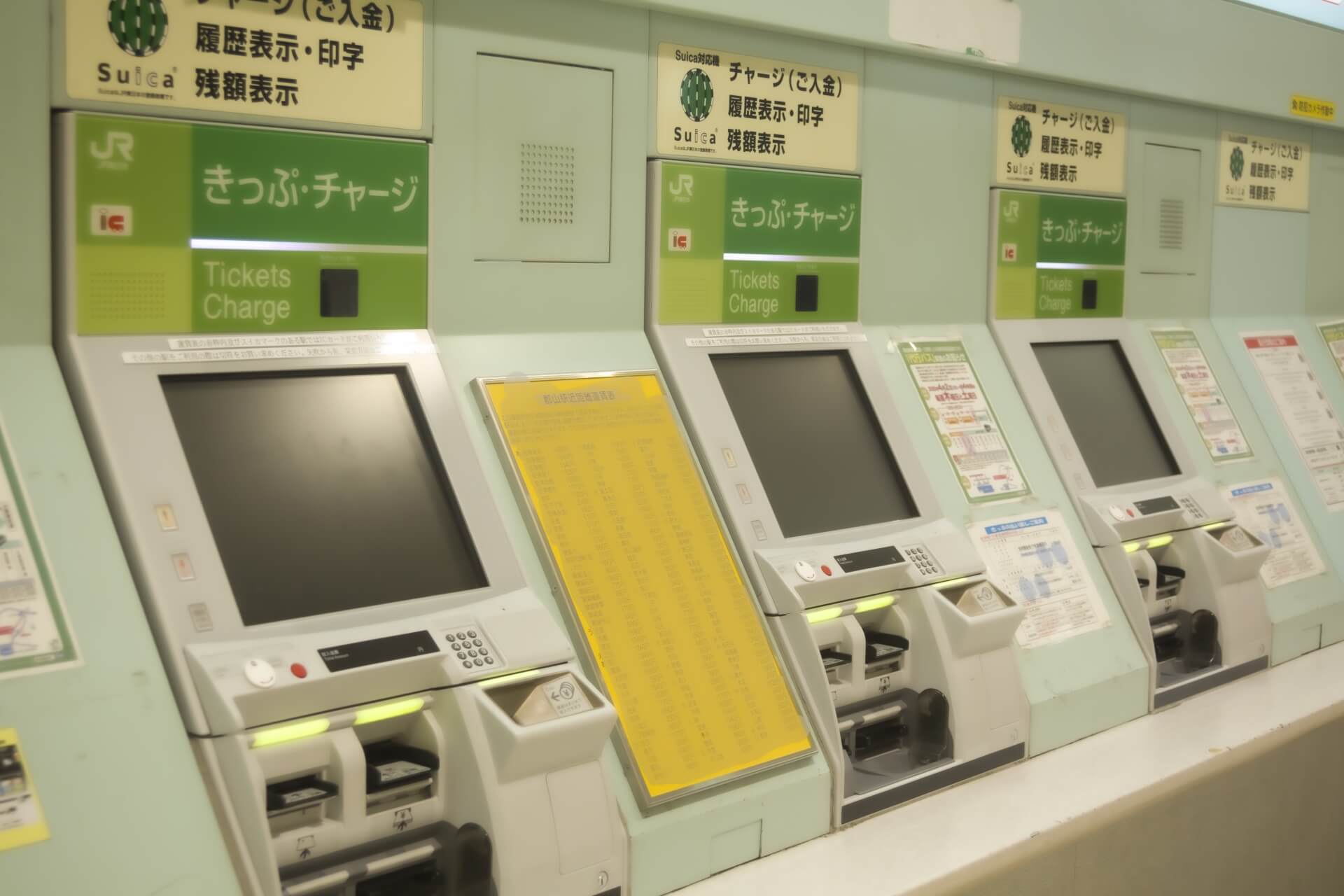
There is no escaping the fact that travel using the shinkansen is expensive. Given the speed and distances covered by these trains, travellers should think of them much like taking a flight, with tickets accordingly priced. International visitors to Japan have the option of purchasing one of several passes which allow for unlimited use of shinkansen and other train services.
JAPAN RAIL (JR) PASS
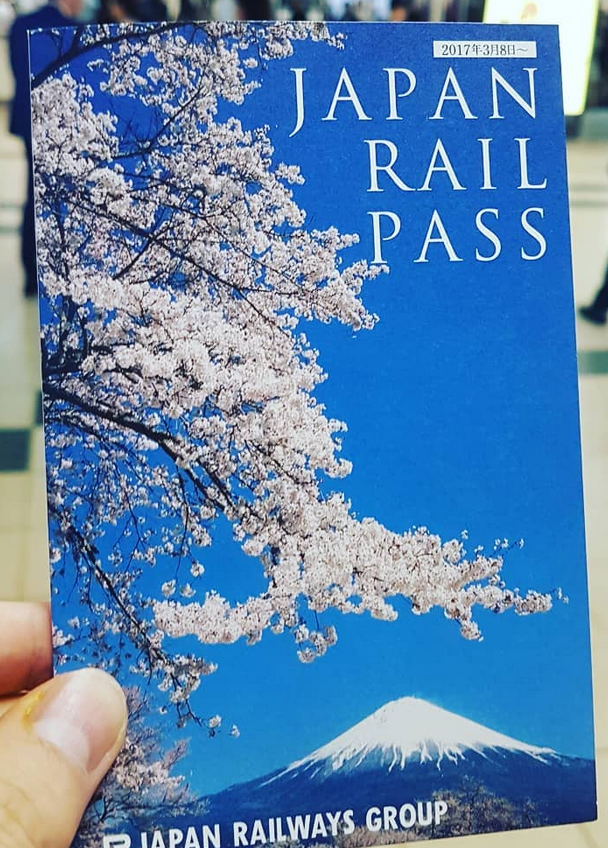
Covering all 9 shinkansen lines in Japan and many other train services, the Japan Rail (JR) Pass is a great option for visitors planning to use the shinkansen more than a handful of times and/or travel large distances. Travellers have the option of 7, 14 and 21-day passes covering either Ordinary or Ordinary and Green Cars. The JR Pass allows for use on San'yo Shinkansen, other than 'Nozomi' and 'Mizuho' services. Despite that restriction the pass offers great value for anyone intending to use the network to move around Japan.
PLAN YOUR VISIT TO JAPAN
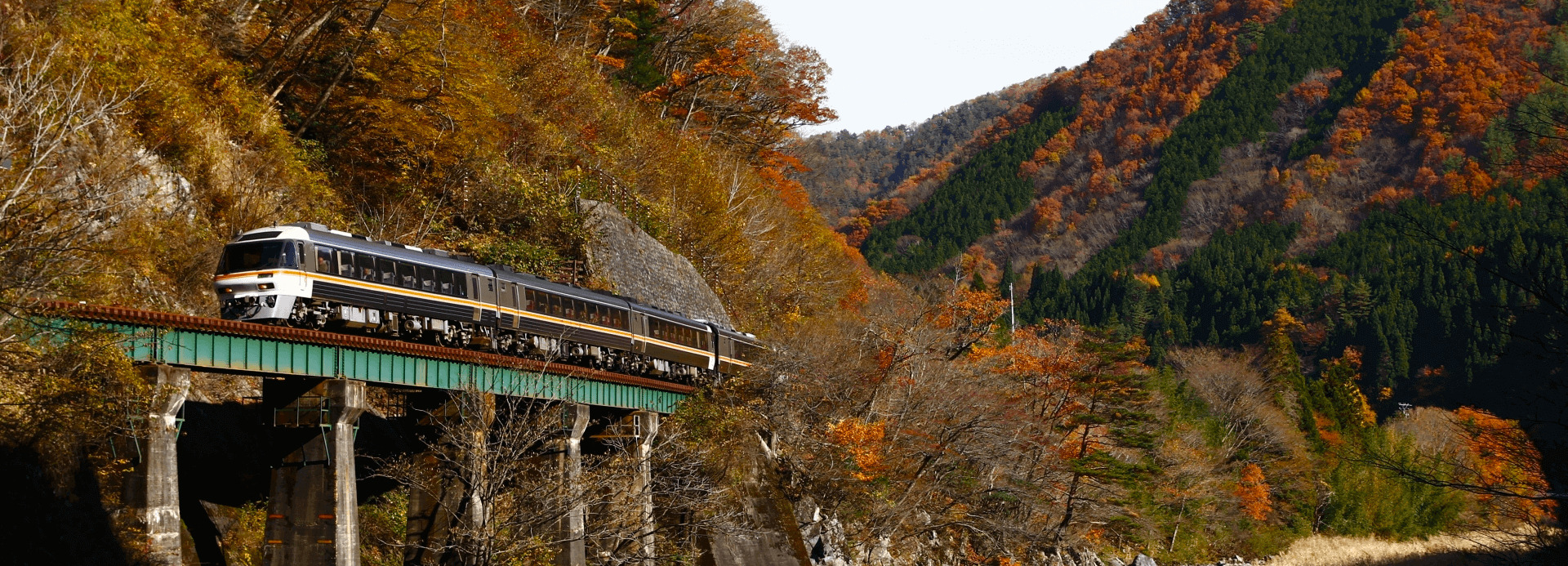

The San'yo Shinkansen is just one part of Japan’s fantastic rail network. Unfathomable in its size and efficiency, moving around the country by train is easy and comfortable opening-up all regions of Japan for exploration. Our ‘Plan Your Visit’ page has everything you need to know about visiting Japan – from tips on the best time to travel, times to avoid, entering and exiting the country, money matters, staying connected, accommodation, staying safe and healthy and plenty more to ensure that you get the most out of your time here.





